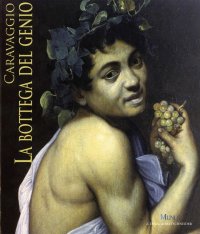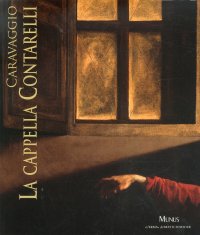L'ora dello spettatore. Come le immagini ci usano.
Edited by M. Di Monte and Gennari Santori F.
Roma, 2020; paperback, pp. 264, col. ill., cm 21x27.
cover price: € n.d.
|
Books included in the offer:
L'ora dello spettatore. Come le immagini ci usano.
Edited by M. Di Monte and Gennari Santori F.
Roma, 2020; paperback, pp. 264, col. ill., cm 21x27.
FREE (cover price: € n.d.)
Caravaggio. La Bottega del Genio
Roma, Museo Nazionale del Palazzo di Venezia - Sale Quattrocentesche, December 22, 2010 - May 29, 2011.
Edited by Falucci C.
Roma, 2010; paperback, pp. 118, b/w and col. ill., tavv., cm 24x28.
(Cataloghi Mostre. 49).
FREE (cover price: € 48.00)
Caravaggio. La Cappella Contarelli
Roma, Palazzo Venezia, March 10 - October 15, 2011.
Edited by M. Cardinali and De Ruggieri M. B.
Roma, 2011; paperback, pp. 150, 60 b/w ill., 60 col. ill., 60 b/w plates, col. plates, cm 24x28.
(Cataloghi Mostre. 50).
FREE (cover price: € 59.00)
A Critical and Historical Corpus of Florentine Painting. Mediaeval Panel Painting in Tuscany (12th to 13th century)
Miklos Boskovits
Gruppo Editoriale Giunti
Edited by S. Chiodo.
Firenze, 2021; bound, pp. 799, col. ill., cm 24x31.
(Corpus of florentine painting. Sez. IV).
series: Corpus of florentine painting. Sez. IV
ISBN: 88-09-78343-3 - EAN13: 9788809783430
Subject: Essays (Art or Architecture),Painting,Wood (Frames, Carving, Furniture, Tarsia)
Period: 0-1000 (0-XI) Ancient World,1000-1400 (XII-XIV) Middle Ages,1400-1800 (XV-XVIII) Renaissance
Places: Tuscany
Extra: Bizantyn Art
Languages: 
Weight: 1 kg











